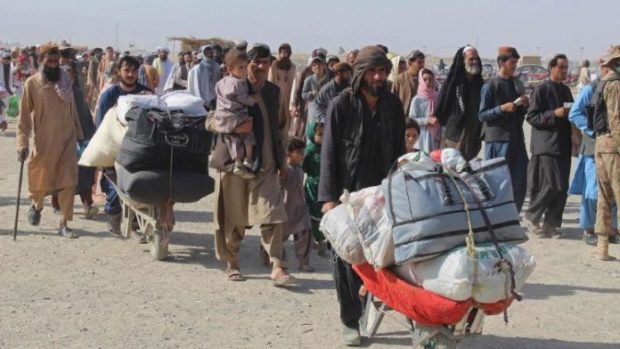The foreign ministry said a charter flight carrying 51 Afghans — including men, women and children — landed in the lakeside city of Entebbe, where they were whisked to hotels in a convoy of buses.
More evacuees from Afghanistan are expected to arrive at a later time in Uganda from the war-torn country, the ministry said.
It said it followed a request from the US government to temporarily host “at-risk” Afghan nationals and others who are in transit to the United States and other destinations worldwide.
“The decision to host those in need, is informed by the Government of Uganda’s consistent policy of receiving refugees and persons in distress as well as playing a responsible role in matters of international concern,” the ministry said in a statement.
Media reports have suggested Uganda had agreed to take about 2,000 refugees but this has not been confirmed.
Uganda hosts one of the largest refugee populations in the world — nearly 1.5 million according to the United Nations, mainly from neighbouring South Sudan and the Democratic Republic of Congo.
The ministry said that arrangements were also being made to bring home a number of Ugandans who were unable to make this first flight “due to the challenges of accessing the airport in Kabul”.
Neighbouring Rwanda said on Tuesday it also plans to take in dozens of schoolgirls and staff from Afghanistan’s only boarding school for girls.
Since the Taliban’s August 15 takeover of Kabul, Afghans have grown increasingly desperate to escape the country, with many terrified of facing life under the hardline Islamist group.
The US embassy in Kampala thanked Uganda for its “generosity and hospitality toward these communities”.
“The Government of Uganda and the Ugandan people have a long tradition of welcoming refugees and other communities in need,” the embassy posted on Twitter.
Most refugees in Uganda live in large refugee settlements in the sparsely populated north of the country but around 81,000 urban refugees live in the capital Kampala.
Aid agencies have repeatedly said that the international response to support refugees in Uganda, a country of about 44 million people, has been underfunded.
 Home Of Ghana News Ghana News, Entertainment And More
Home Of Ghana News Ghana News, Entertainment And More





